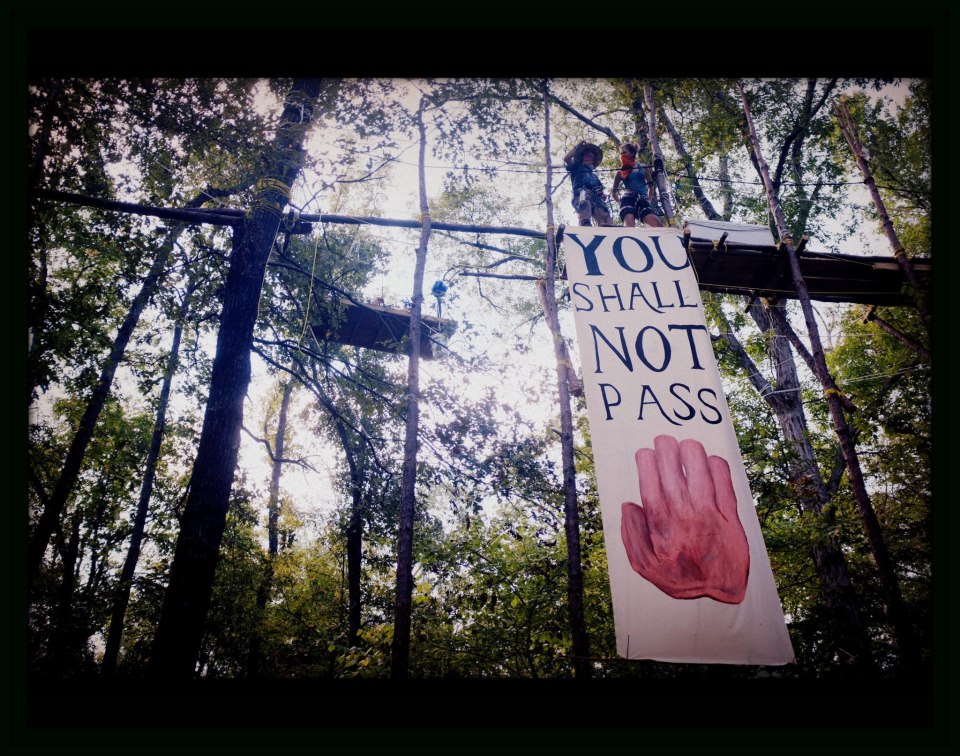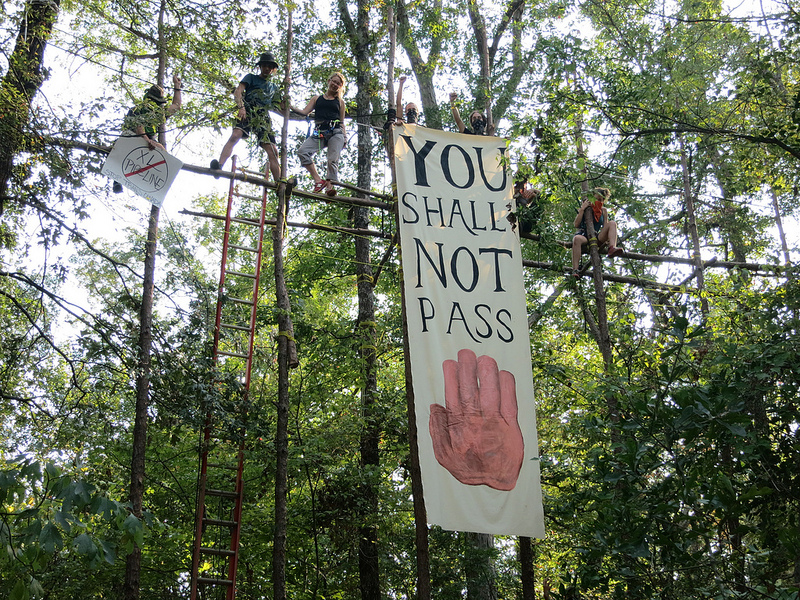By Jason Mark / Earth Island Journal
Chief Allan Adam, the head of the Fort Chipewyan community in the far north of Alberta, has been fishing in Lake Athabasca for all of his life. His father, now 76 years old, has been fishing there even longer. And neither of them has seen anything like what they pulled from the lake on May 30: two grotesquely deformed, lesion-covered fish.
When they caught the sickly fish, each taken from a different part of the lake, the two Indigenous men immediately figured that it had something to do with the massive tar sands oil mines that lie about 300 kilometers upstream along the Athabasca River. “We have been putting two and two together, and raising concerns about the fast pace of [tar sands] development,” Chief Adam told me in a phone interview this week. “The tailing ponds are leaking and leaching into the rivers, and then going downstream to Lake Athabasca.”Here in the United States, public opposition to the tar sands has centered on the proposed Keystone XL pipeline: how it could jeopardize the fresh water supplies of the Ogallala Aquifer and how it would increase greenhouse gas emissions by keeping us locked into the petroleum infrastructure. For now, those worries remain hypotheticals. But for the people of Ft. Chipewyan — a community of about 1,200 that is only accessible by plane most of the year — the environmental impacts of the tar sands are already a lived reality. According to a 2009 study by the Alberta Cancer Board, the cancer rate in Ft. Chipewyan is higher than normal. Many of the residents there blame the industrial development south of them for the disproportionate cancer rates.
...






